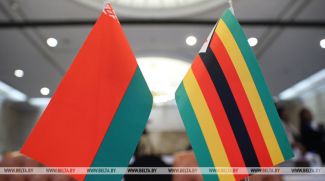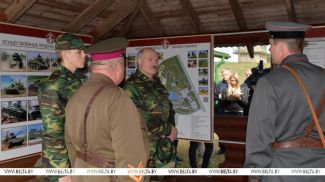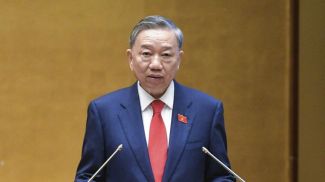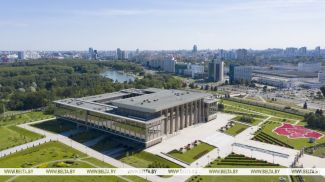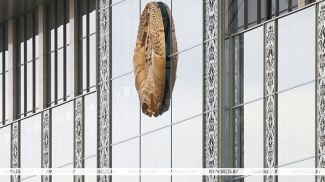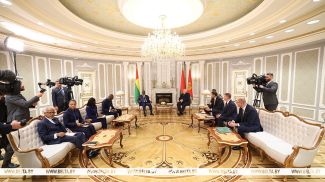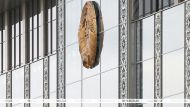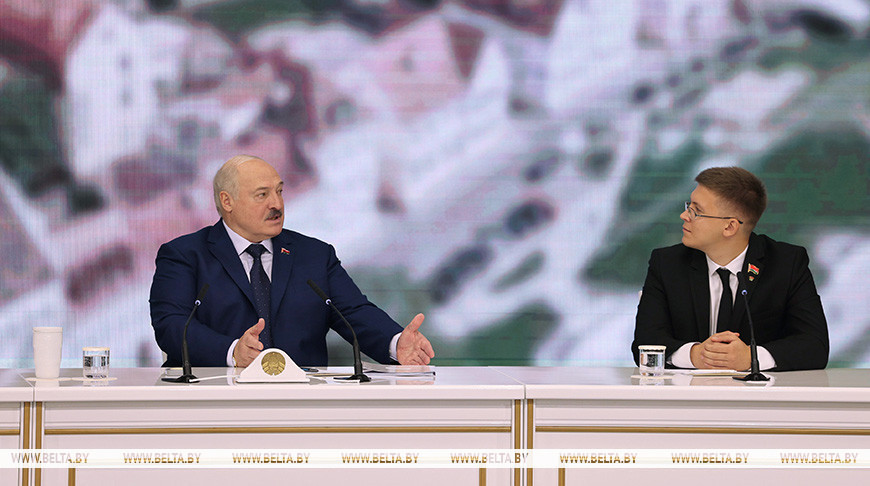
MINSK, 27 September (BelTA) – Belarusian President Aleksandr Lukashenko spoke about his most difficult foreign trip during the Open Microphone with the President session with students of the engineering and technical universities of Minsk on 27 September, BelTA has learned.
The head of state said that all his foreign trips can be called difficult, because sometimes very intense negotiations take place behind the protocol events.
“Perhaps the most difficult was my foreign trip last year when we went to China, and then we had to fly to Africa,” Aleksandr Lukashenko said.
On his way from China to Africa, the president made a stop in the United Arab Emirates to hold several more working meetings. “Then we flew to the east of Africa. From the east we went to the west of Africa, and then again to the east. I think we completed our visit in Kenya. We went back to the Emirates where I met with the president to discuss some issues. I think the whole visit took more than a week. It was rather a difficult trip, because those are hot countries. I am a northern person. I cannot stand heat at all. Those days were a real test for me,” the head of state said.
Aleksandr Lukashenko said that he disliked foreign trips and bore long trips abroad very hard. “That is why I have never gone abroad on vacation throughout my presidential years. I can have a rest only when I am home, although it is almost impossible to switch off my presidential duties here. I love my country very much. I love its nature. It is a unique place we live in,” the president said.
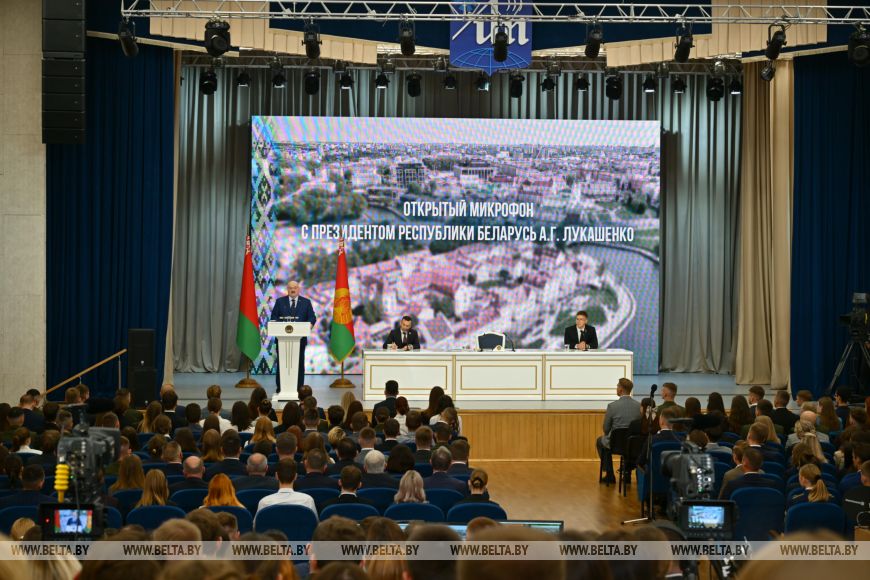
The students asked the head of state whether he considered his visit to Yugoslavia in 1999 to be a difficult one. In those years, the country was constantly bombed by NATO forces.
“Well, yes, Belgrade. I have already forgotten about it!” Aleksandr Lukashenko said.
The president called those events pure fascism on the part of NATO. The alliance never guaranteed the safety of the Belarusian flight to Yugoslavia. Moreover, it absolutely neglected the fact that the leader of another country was in Belgrade and carried out air raids.
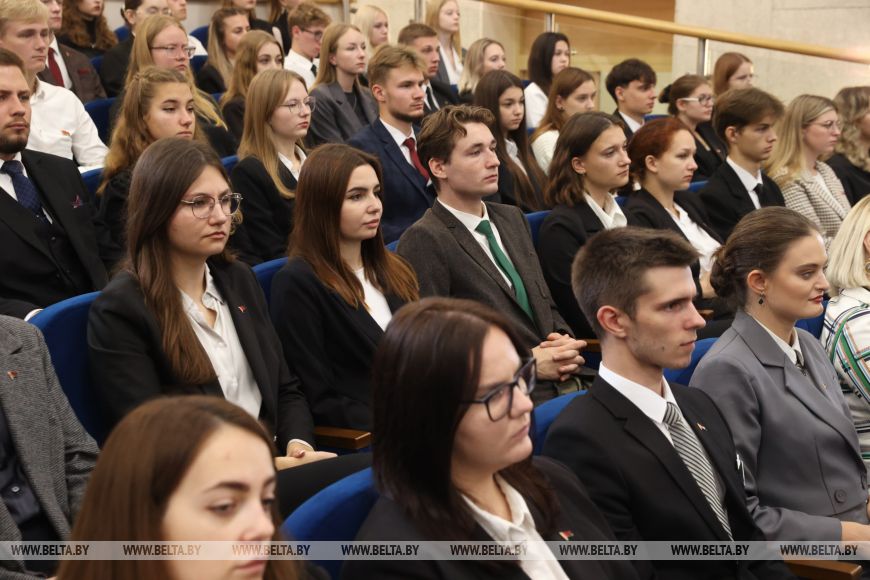
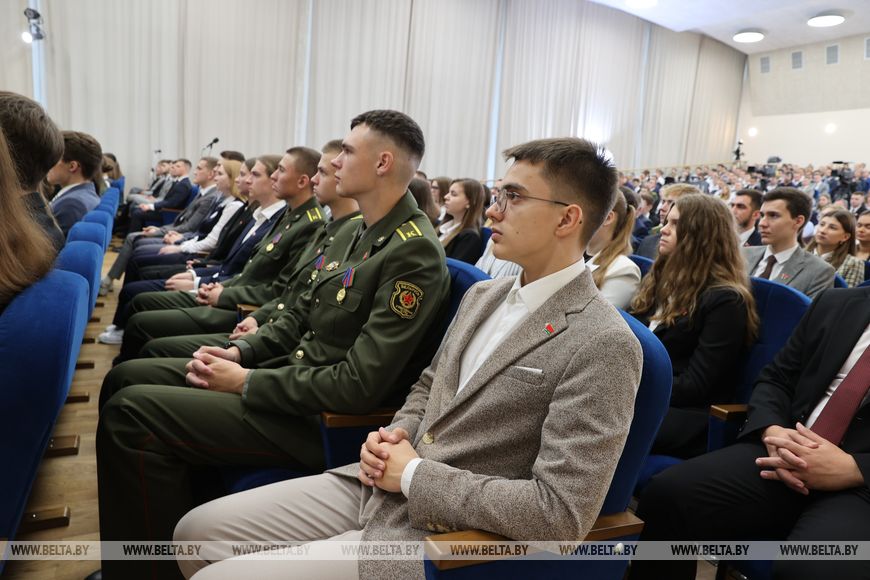
The head of state said that all his foreign trips can be called difficult, because sometimes very intense negotiations take place behind the protocol events.
“Perhaps the most difficult was my foreign trip last year when we went to China, and then we had to fly to Africa,” Aleksandr Lukashenko said.
On his way from China to Africa, the president made a stop in the United Arab Emirates to hold several more working meetings. “Then we flew to the east of Africa. From the east we went to the west of Africa, and then again to the east. I think we completed our visit in Kenya. We went back to the Emirates where I met with the president to discuss some issues. I think the whole visit took more than a week. It was rather a difficult trip, because those are hot countries. I am a northern person. I cannot stand heat at all. Those days were a real test for me,” the head of state said.
Aleksandr Lukashenko said that he disliked foreign trips and bore long trips abroad very hard. “That is why I have never gone abroad on vacation throughout my presidential years. I can have a rest only when I am home, although it is almost impossible to switch off my presidential duties here. I love my country very much. I love its nature. It is a unique place we live in,” the president said.

The students asked the head of state whether he considered his visit to Yugoslavia in 1999 to be a difficult one. In those years, the country was constantly bombed by NATO forces.
“Well, yes, Belgrade. I have already forgotten about it!” Aleksandr Lukashenko said.
The president called those events pure fascism on the part of NATO. The alliance never guaranteed the safety of the Belarusian flight to Yugoslavia. Moreover, it absolutely neglected the fact that the leader of another country was in Belgrade and carried out air raids.

“We were approaching the border of Yugoslavia when the crew chief came in and said 'Comrade President, we have been ordered to descend to a one-kilometer altitude.' I realized what it was. They thought I would turn around as the situation was extremely dangerous. I told him to descend. He looked at me and warned of a possible attack. I told him that they would not attack. Through the window I saw that we descended and were flying above treetops. They saw that they did not frighten us. We approached the airfield, and they started bombing Yugoslavia. We landed under this cannonade. I did not even know that some of our delegation had parachutes with them. It was a really extreme trip. Serbs appreciated it,” the head of state recalled.




